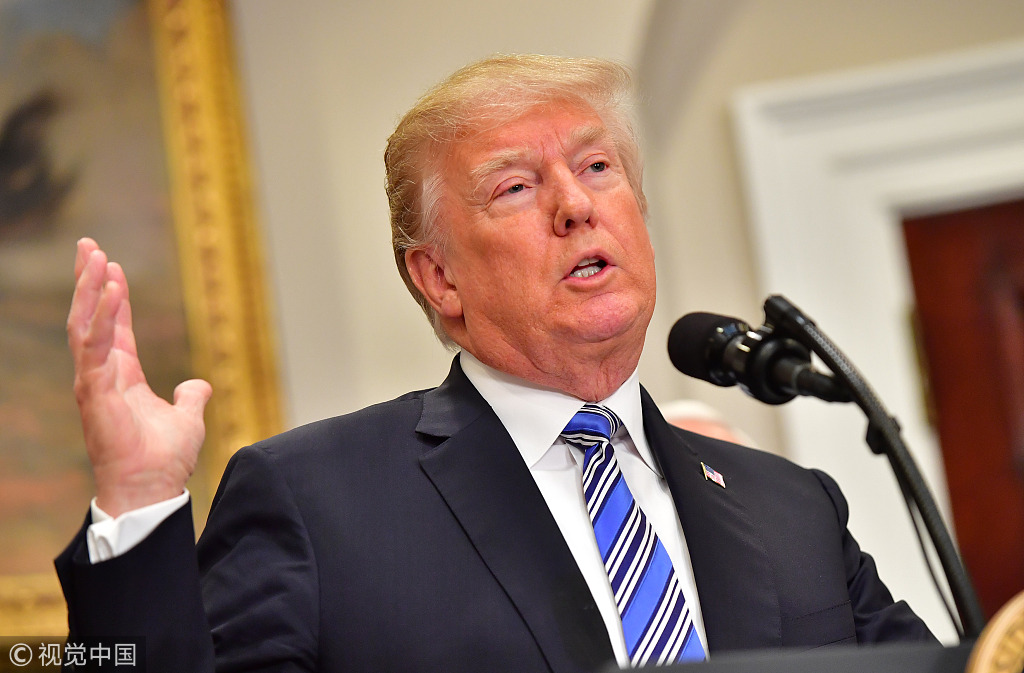US businesses air tariff concerns to USTR


Majority of 130 witnesses voice strong opposition to Trump's proposed tariffs
US businesses expressed concerns over the White House's strategy to address the trade relationship with China, urging discretion by the US trade representative (USTR), as three days of public hearings concluded on Thursday in Washington.
The packed hearings, held at the US International Trade Commission, are part of the executive office's efforts to solicit public comments before any of its so-called Section 301 (of the US Trade Act of 1974) tariffs are implemented on approximately $50 billion worth of Chinese imports.
The majority of the more than 130 witnesses voiced strong opposition against the proposed tariffs, representing firms and industries that have close trade relationships with China, including steel, automobile, electronics, agriculture, medicine, machinery, semiconductors and energy.
"Imposing 25 percent additional tariffs on imports of nearly $3 billion of medical technology products is a wrong action at a wrong time," said Ralph Ives, executive vice-president of the Advanced Medical Technology Association, which has some 350 companies doing business with China.
"We rely on international trade to retain our leadership in a highly and increasingly competitive global market," said Ives, who added that the products on the USTR list are running a surplus.
Downstream businesses that manufacture finished goods have more to lose in an integrated global supply chain should a proposed 25 percent tariff be enacted, according to Lian Jie, partner at Globe-Law law firm representing the Patent Protection Association.
The possibility of seeking alternative sourcing markets outside of China was the most commonly raised question to US businesses by the hearing committee headed by the USTR, Department of Commerce and Department of Labor.
A great majority of the witnesses explained why businesses from various industries should refrain from seeking alternative sources, citing reasons such as increased cost, lack of sufficient capacity in alternative markets, and a lengthy time lag for government approval.
"Typically, it takes some 18 months for us to examine possible suppliers in order to make sure they have the required production capacity to meet our standards," said Alan Shaw, president of Electrolux Major Appliances in North America.
But US businesses are most concerned that they would have to pass any increased costs on to their customers.
"A proposed 25 percent tariff will raise the cost of a small family recreational boat by $2,000," according to John Pfeifer, president of Mercury Marine, a Wisconsin-based company that produces marine engines and fishing apparel and runs a wholly owned subsidiary in Suzhou, a city in South China's Jiangsu province.
Another major issue that US trade representatives have addressed is whether there has been forced technology transfers from the Chinese government against US companies, a centerpiece of the accusations that the USTR has lodged against China.
"Since 2003 when we opened a factory in Suzhou, the company has been wholly owned and controlled by Mercury. There is no forced technology transfer and sharing of know-how required by the Chinese government," said Pfeifer.
The USTR published a report in April this year highlighting the office's efforts to "press China on a range of issues affecting the pharmaceutical sector".
Ives was delighted that China is making much progress to establish a world-class regulatory body under the leadership of the China Food and Drug Association (CFDA).
The next step is for the USTR to review the written submissions from witnesses and present its findings to the administration.
Guo Fengqing in Washington contributed to this story.

































